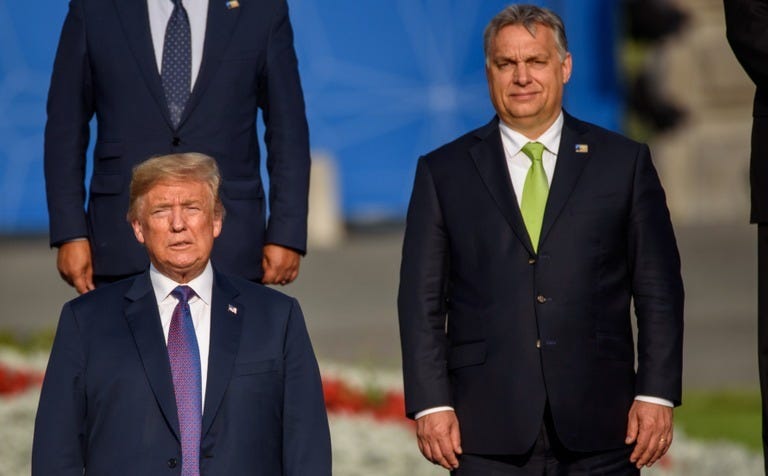How would the EU react to a second US coup attempt?
Viktor Orban has invited the 26 other EU leaders to a summit in Budapest two days after the US election. There are concerns he will use it to question the election result If Harris wins.
There are two weeks to go until the US presidential election, and the mood in Brussels is currently one of helpless inertia. “It feels like an asteroid is hurtling toward Earth and in two weeks there's a 50% chance it will hit and destroy life as we know it," one exasperated EU official told me this week. Once again, this dependent continent waits for a few thousand American voters to decide its fate. And officials in Brussels, who pay very close attention to US politics, are aware that there is no good outcome awaiting them on 6 November.
What’s clear from the statements of Donald Trump and those around him is that there are three possibilities for US election day:
Donald Trump legitimately wins and the Democrats concede
There is a legitimately contested result as in 2000 that will take some weeks to resolve
Kamala Harris legitimately wins but Trump refuses to concede.
Gone is any expectation that Harris could win by a large enough margin to stop attempts to overturn the election before they begin. This will be a razor-thin result, and only one side is prepared to concede if the other wins. There is no possibility of relief on 6 November for those who believe in rule of law and democracy. It will be either an immediate and horrifying blow, or weeks of drawn out tension and threats of a coup.


